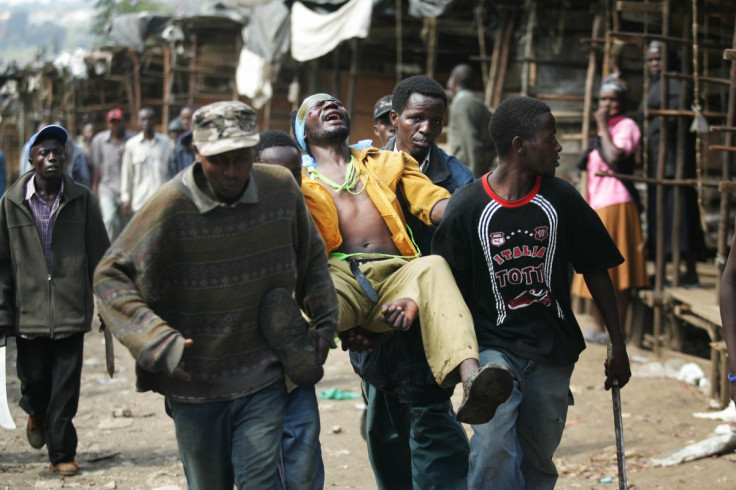Kenya agrees £4.2m compensation for Rwandan and Ugandan firms over post-election violence losses
Some 1,200 people died and more than 600,000 were displaced in Kenya's 2007-08 post-election violence.

Kenya has agreed to pay Sh538m (£4.2m, $5.2m) to Ugandan and Rwandan firms that are demanding compensation for losses they suffered in Kenya's 2007-08 post-election violence, according to reports.
Following the 2007 disputed poll, civilians and police were reported to have fired live bullets, people were beaten or shot with arrows, roads were blocked by barricades and fires, police used excessive force against protesters, and ethnic-based killings ensued, leaving some 1,200 people dead and more than 600,000 displaced.
Thirteen Ugandan and Rwandan firms and three businessmen sued the government in 2009 for negligence, demanding Sh4.7bn compensation for special damages.
Only 13 traders - 12 from Uganda and one from Rwanda - managed to present evidence of losses incurred on the Kenyan soil, amounting to the Sh4.7bn bill.
The traders claim the government, through the police, failed to grant their vehicles adequate security during the violence, which led to the loss of their property in the turmoil. They also accused the government of opening the highway for use in clash-prone areas.
Attorney General Githu Muigai and the Treasury director-general for budget and economic affairs Geoffrey Mwau said, of the total Sh4.7bn demanded, only Sh538m is genuine and should be settled, according to Business Daily.
"It is several years since 2008. We have claims of several billions and the position of the inter-ministerial committee says the bulk of the claims are baseless. Only Sh538m is legal claims," Muigai told the National Assembly's Administration and National Security committee.
The traders from the two landlocked states, which depend on Kenya's second-largest city Mombasa's port for imports and exports, initially estimated their losses in the post-election violence at Sh20bn.
Kenya's President Uhuru Kenyatta, then deputy prime minister and finance minister, was the first head of state to appear before the ICC after he was charged in January 2012 for crimes against humanity for his alleged role in organising and financing murder, displacement, and rape during the 2007-08 violence.
In 2014, however, the court had to withdraw the charges for lack of evidence, after a large number of witnesses were allegedly intimidated into changing their testimony.
In 2016, the ICC also dismissed the case against Kenya's vice-president William Ruto and his co-accused, journalist Joshua Arap Sang, who each faced three charges – murder, deportation or forcible transfer of population, and persecution.
© Copyright IBTimes 2025. All rights reserved.






















